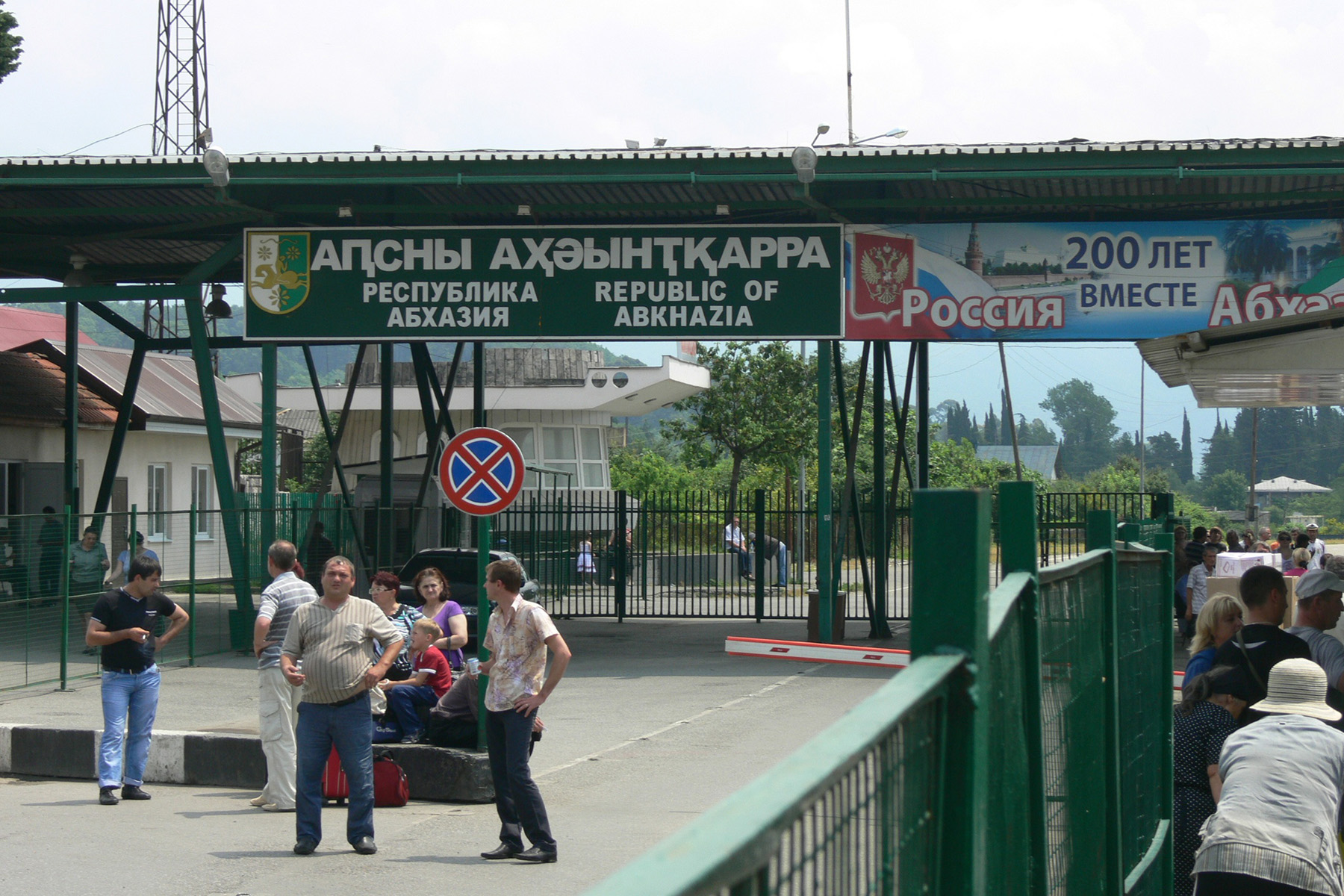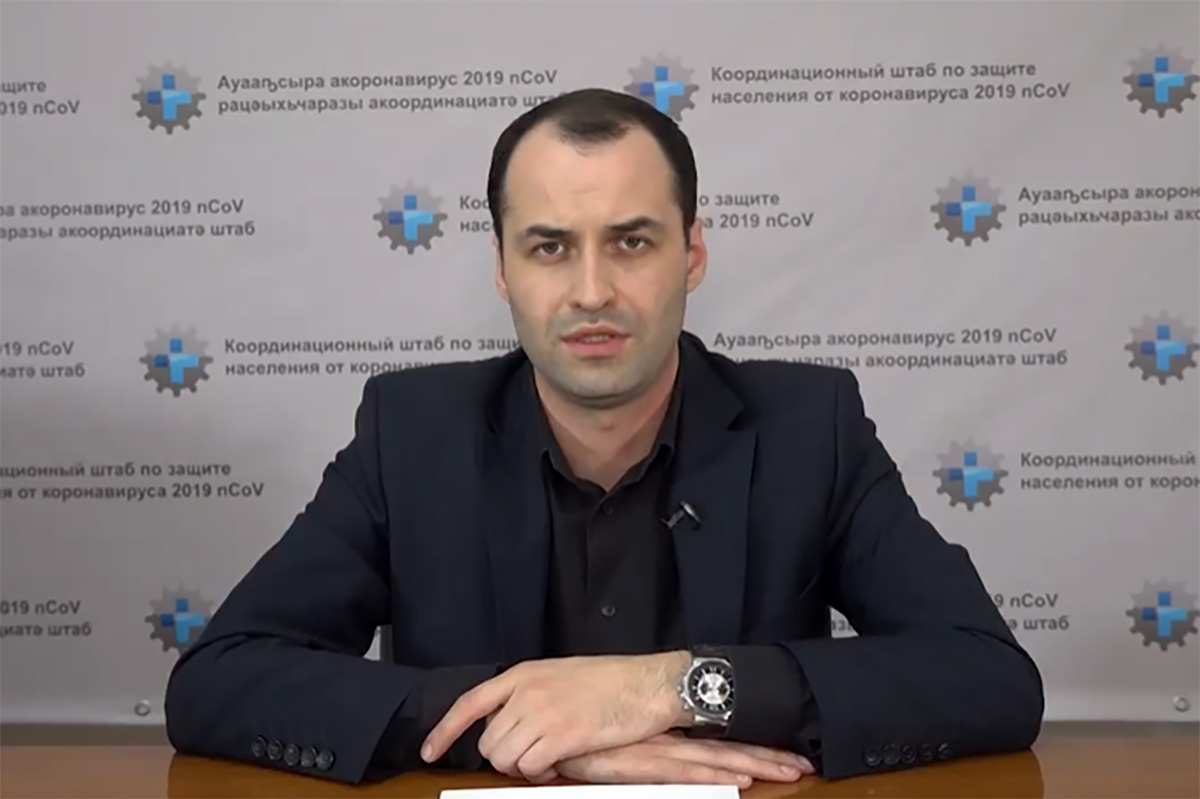Abkhazian health authorities fear ‘drowning’ in COVID-19 cases as thousands of tourists flow in

Medical authorities in Abkhazia have warned of a possible surge in coronavirus infections putting a strain on the health system, after thousands of Russian tourists flocked in over the weekend.
The Russian government opened its border with Abkhazia on Saturday with the Abkhazian authorities reciprocating and rescinding a ban on tourism the same day.
On Sunday, Deputy Health Minister Alkhas Kondzhariya held an emergency meeting with doctors and members of the government’s anti-coronavirus taskforce.
Following the meeting, he suggested the taskforce had not been consulted in advance of the decision, complaining of the ‘unexpected’ and ‘instant’ reopening of the border.
‘Anyone willing is able to enter now,’ he said.
Vyacheslav Argun, the chief physician at the Central Republican Hospital in the west Abkhazian town of Gagra, told Sputnik Abkhazia that the ‘uncontrolled’ border crossing had created a ‘lousy situation’.
Kondzhariya said that the number of new coronavirus cases had begun to rise even before Saturday’s border reopening, with ‘8-10 daily cases’ in recent days.
‘Already at this level, we understand that handling such an increase in [COVID-19] patients will be extremely difficult; add to our population those who will arrive… we’ll simply drown and won’t be able to provide care to either our citizens or to others’, Kondzhariya warned.
According to him, around 7,500 people entered Abkhazia through the River Psou checkpoint with Russia within 24 hours of it reopening.

On Monday evening, Abkhazian Prime Minister Aleksandr Ankvab castigated healthcare officials for ‘exceeding their authority’, accusing them of making ‘panicked’ statements.
While not naming names, he called for those responsible to resign.
‘The country needs leaders who are able to make quick, professional decisions in unusual situations, not those who spreaders provocative statements [and are] ready to run away at every complication,’ Ankvab said.
On Monday, Russian border authorities in Sochi, Krasnodar Krai, confirmed that 6,300 passenger cars and 190 buses had entered Abkhazia and that over 30,000 people had crossed the border to or from Abkhazia within the last two days.
Krasnodar Krai registered a record-high number of new daily cases on Monday — 107.
‘Restrictive measures’ to come?
According to Kondzhariya, the anti-coronavirus taskforce had previously been considering a ‘gradual’ reopening of the border, including requesting those entering Abkhazia present ‘COVID-passports’ or other documents confirming they had tested negative for COVID-19.

Abkhazian President Aslan Bzhaniya first floated the idea of ‘COVID-passports’ in early June. In late July, days before travelling to Moscow, he also offered to coordinate the ‘gradual’ reopening of the border with Russian authorities.
Such requirements were not present in Saturday’s decision to reopen the border, following a four-month closure.
After expressing concern that tourists could worsen the epidemiological situation in Abkhazia, the Health Ministry suggested that some stricter controls beyond measuring the temperature of incoming visitors could be enforced.
The ministry reiterated a suggestion from Alkhas Dzhindzholiya, an MP and member of the coronavirus taskforce, on Sunday to introduce ‘restrictive measures’ on the Psou Checkpoint. However, no further details were given.
It has remained unclear if local tourism operators, including hotels, will request documents from guests attesting they have tested negative for COVID-19, as per instructions by the authorities in late July.
In an announcement on Sunday, the Tourism Ministry did not mention such papers, only mandating that tour guides and sightseers wear face masks while in vehicles.
As the number of new cases of COVID-19 has begun to increase, the coronavirus taskforce has suggested other ways to contain its spread.
During Sunday’s meeting, physician Anzhela Archeliya argued that the way patients with mild symptoms were supervised while recovering at home needed to be overhauled.
As of last weekend, 22 of those currently infected were staying at home.
Archeliya said that the reason behind the need for change was that the COVID-19 virus had been getting ‘more aggressive’.
‘The conditions of patients are getting worse at the speed of light’, Anzhela Archeliya noted on Sunday.
There have been 98 officially confirmed cases of COVID-19 in Abkhazia to date, including 3 fatalities and 37 recoveries. On Sunday, 14 new cases were confirmed since the previous day.
For ease of reading, we choose not to use qualifiers such as ‘de facto’, ‘unrecognised’, or ‘partially recognised’ when discussing institutions or political positions within Abkhazia, Nagorno-Karabakh, and South Ossetia. This does not imply a position on their status.









